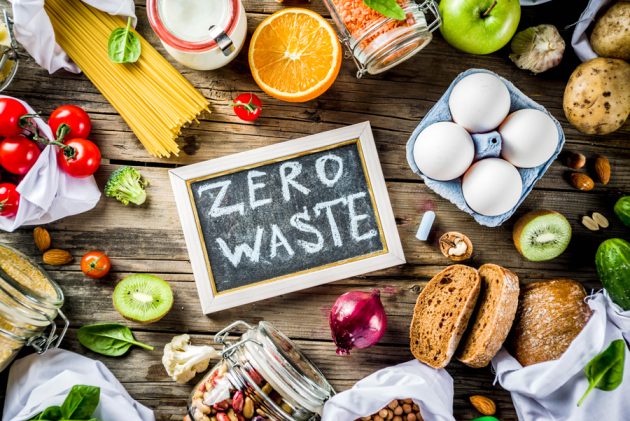
Sustainable Change: Lessons from the food waste frontline
By Cher Mereweather
Sustainability Cher Mereweather Editor pick food waste Provision Coalition Photo © ricka_kinamoto / Adobe Stock
Photo © ricka_kinamoto / Adobe Stock In 2019, Provision and Enviro-Stewards along with the Canadian Centre for Food Integrity and the Walmart Foundation carried out food loss + waste (FLW) prevention assessments at 50 manufacturing facilities across Canada. We found 9.3 million kg/year of potential savings; an average value of $228,000 per facility. We also provided the companies with the engineering and technical requirements for realizing those savings.
Earlier this year, in partnership with Second Harvest and the Walmart Foundation, Provision and Enviro-Stewards began follow-ups with these companies. We assumed that with such a strong business case (an addition of almost $25,000 to the bottom line), the majority of food waste would have been prevented. However, of the 38 companies we have spoken to so far, only 1.3 million kg of food waste had been prevented, which is less than 15 per cent.
This study once again proves food waste is not a technical or an engineering problem, but a human issue. For instance, look at some of the quotes from our follow-up interviews…
- The challenge came from leadership not prioritizing this.
- Our leadership fell down in instilling true accountability.
- The person accountable for the implementation left, so it never got completed.
- We didn’t have a continuous improvement team so we weren’t able to do a deeper dive into why things were happening.
Eighty-five per cent of the food waste identified two years ago is still being wasted. This is happening despite the fact companies had the technical and engineering insights and business case to deal with the issue. However, the quotes are clear—it’s all about the human side; having the right leadership, right accountability, and right people on the ground to support the required behavioural change.
We created Provision with a clear purpose—to help the food and beverage industry become more sustainable. So, we have put together four key insights that you need to know to effectively address food waste in your organization.
1. Lead so others will want to follow
FLW prevention has to have the support of leadership. If the C-suite is not bought in, this will not happen at the plant level. Leadership needs to champion and lead by example—by working with the operational teams to create a goal that is both aligned to business priorities and ideally supports the United Nations Sustainable Development Goal 12.3. This requires empowering your managers/supervisors to make sure they can own the results that need to be generated in the plant through clearly defined objectives and key results. If your managers aren’t on board, then the frontline teams won’t get the recognition they deserve for their hard work in making it happen.
2. Improvement is continuous
The handful of companies that successfully implemented the savings we identified in 2019 focused on continuous improvement. While leadership can set goals, the ownership of the delivery of a goal as transverse as FLW needs to sit with a team who are responsible for continuous improvement. This team must be sourced from across the company and given a clear mandate to question processes and challenge the status quo, and are evaluated on the company’s success from continuous improvement efforts.
3. Change is hard
If you are asking people to change the way they have been doing things for years, simply telling them there is a new SOP to follow is not going to cut it. This sounds obvious, but every week, we see companies who have implemented new FLW prevention processes and failed to associate them with any kind of change management plan for their employees. This just sets them up to fail.
4. Don’t be too quick to say no
Despite the fact the payback on most FLW projects is less than a year, I do recognize finding capital can be a barrier. However, ROI on projects can, and do, change rapidly due to evolutions in process and technology. Even if you park a project because it’s too expensive, go back and revisit it every six months.
However, before parking it, make sure you are also considering the environmental and social aspects of your ROI. Financial ROI may be the classic way of sweet-talking your banker, but increasingly telling a human story about how an investment will improve your overall sustainability and grow your community impact, is just as important.
I’ve been working on FLW for over a decade. If you adopt these insights and remember you are dealing with a human rather than a technical issue, you will be on track to realizing the potential for growth and engagement that food waste prevention offers.
Cher Mereweather, CEO of Provision Coalition, Inc., is a Canadian-based food industry sustainability expert.
This article was originally published in the September 2021 issue of Food in Canada.
Print this page